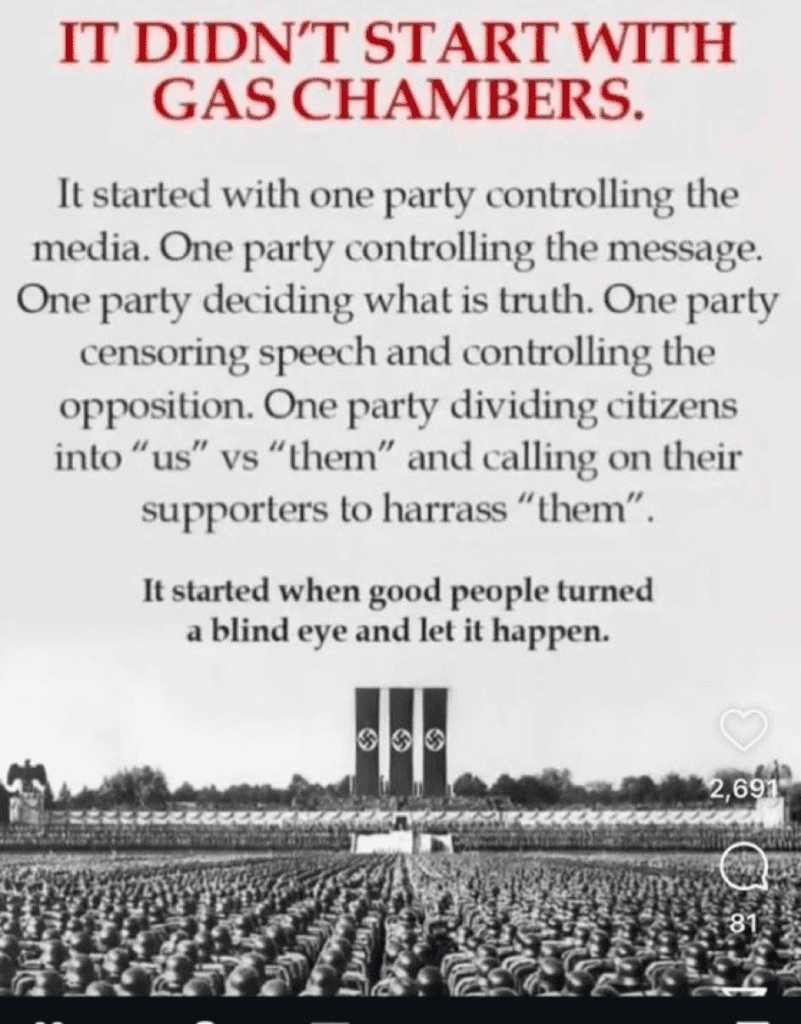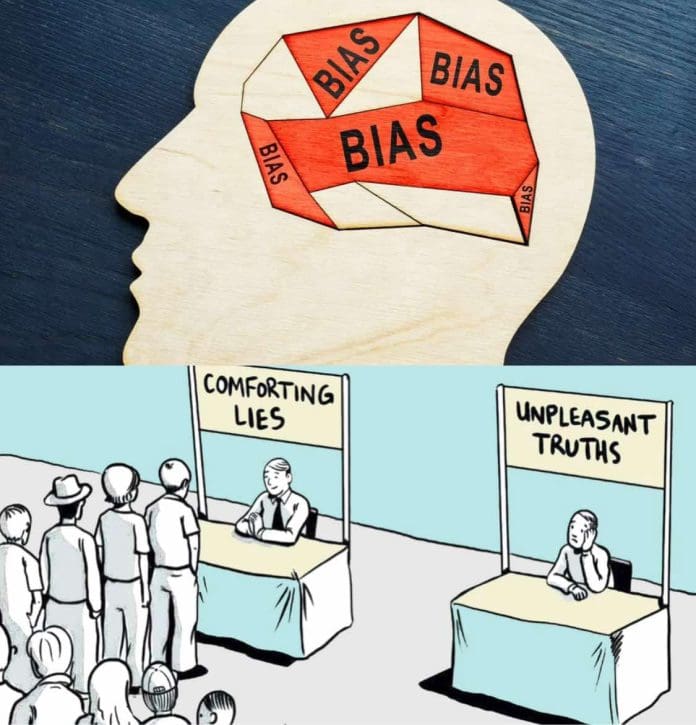In an era awash with information, it is remarkable and troubling how easily some people will accept a total fabrication over a verified fact. Even more alarming is the speed and enthusiasm with which bigoted, conspiratorial nonsense spreads, particularly when it flatters one’s prejudices or confirms deeply held suspicions about “how things really are.”
Take, for instance, the now widely circulated claim, entirely untrue, that a 45-year-old British mother was sentenced to nine months in prison for posting on Facebook, “We must take back our country; I can no longer stand British girls being sacrificed to Muslim grooming gangs.”
A 45-year-old British mother in the UK has been sentenced to 9 months in prison for writing on Facebook: 'We must take back our country, I can no longer stand British girls being sacrificed to Muslim grooming gangs.' https://t.co/qajjTBaeMu pic.twitter.com/a3JQxYIRll
— Matt Bracken (@Matt_Bracken48) April 15, 2025
🚨🇬🇧BREAKING NEWS
— Radio Europe (@RadioEuropes) April 15, 2025
A 45-year-old British mother in the UK has been sentenced to 9 months in prison for writing on Facebook: 'We must take back our country, I can no longer stand British girls being sacrificed to Muslim grooming gangs.' pic.twitter.com/oozqLZzLnd
The story has no basis in reality. No such case has ever passed through a British court. There is no record, no name, and no official documentation. Yet the claim continues to circulate, accepted as fact by those predisposed to see the UK as a country where “free speech is illegal” and “the truth is silenced to appease Muslims.”
To any thinking person, the details of this story should immediately raise suspicions. A prison sentence for a single Facebook post, however provocative, would represent a dramatic overreach of British law, one that would instantly make headlines across the political spectrum. And yet, such scrutiny is almost never applied by those who share it. Why?
Because the point was never truth. The point was confirmation.
These narratives, and they are legion, don’t survive on the basis of evidence; they thrive on resentment. They offer a sense of righteous anger, a feeling of being “in the know”, and a belief that one is bravely resisting a corrupt, multiculturalist establishment. And they are tailor-made for virality: short, emotive, and scandalous. They travel quickly across platforms like Facebook, Telegram, and X (formerly Twitter), often originating from the same web of disinformation merchants who understand precisely how to weaponise cultural panic.
The psychology behind this is well-established. People are more likely to believe things that fit their worldview, especially when delivered in emotionally charged terms. This is known as confirmation bias, and it’s been supercharged by the social media algorithm, a machine that feeds users ever more extreme content based on past engagement. If you once clicked a video decrying immigration, your feed will soon be a parade of culture war grievances, many of them fictional.
In this ecosystem, facts become irrelevant, or even suspect. The mainstream media, in particular, is cast as not just biased but actively malevolent. Any effort to debunk a false claim is seen as proof of a cover-up. A BBC fact-check becomes part of “the narrative.” The courts are corrupt. The government is weak. Only they — the anonymous voices behind the memes, the YouTube rants, and the red-faced pundits — are telling the “real truth.”
The result is an alternate reality in which British values are being erased, where Muslims are both privileged and dangerous, and where white Britons are the oppressed majority. It is a narrative that flips the actual power structures on their head. It recasts the dominant demographic, white, Christian, and culturally mainstream, as under siege. The purpose of this isn’t truth-seeking. It’s scapegoating.
Let’s be clear: these lies do not emerge organically. They are deliberately constructed, often by far-right activists, disinformation networks, or bad-faith actors seeking to destabilise democratic societies. The story of the imprisoned mother isn’t an isolated urban legend; it’s part of a calculated effort to create a sense of existential crisis, to push ordinary citizens toward radicalisation by making them feel that their country has been stolen.
This narrative has serious consequences. It fosters mistrust not only in institutions but also in fellow citizens. It dehumanises Muslims, immigrants, and anyone who stands against racist dogma. It leads to harassment, hate crimes, and political violence. And crucially, it undermines the idea of objective reality; a cornerstone of democratic discourse.

What’s more, these lies obscure real issues. Grooming gang scandals, for example, have occurred and demand scrutiny and justice, but when they are weaponised as blanket indictments of an entire faith or ethnicity, the conversation becomes poisoned. It ceases to be about protecting victims and becomes about pushing an ethnonationalist agenda. That isn’t justice; it’s opportunism dressed in outrage.
So what can be done?
First and foremost, we need to normalise scepticism, not cynicism. Scepticism asks questions. It demands evidence. Cynicism, on the other hand, assumes all institutions are corrupt and, in doing so, opens the door to every conspiracy theory that promises “the truth.” We must teach media literacy, especially to older generations who did not grow up in the disinformation age. We need stronger regulation of social media platforms, more transparent fact-checking, and a cultural shift away from the indulgence of bigoted fear-mongering.
But perhaps most importantly, we must hold each other accountable. The next time someone shares a story about a white mother being jailed for “telling the truth,” ask them for a source. Challenge them. Remind them that lies told in the service of prejudice are still lies and that they poison not just our politics, but also our relationships, our communities, and our democracy.
Because if we don’t care whether something is true, so long as it makes us feel angry and vindicated, then we are no longer thinking. We are reacting. And reaction, unchecked by reason, has never led any country anywhere good.







